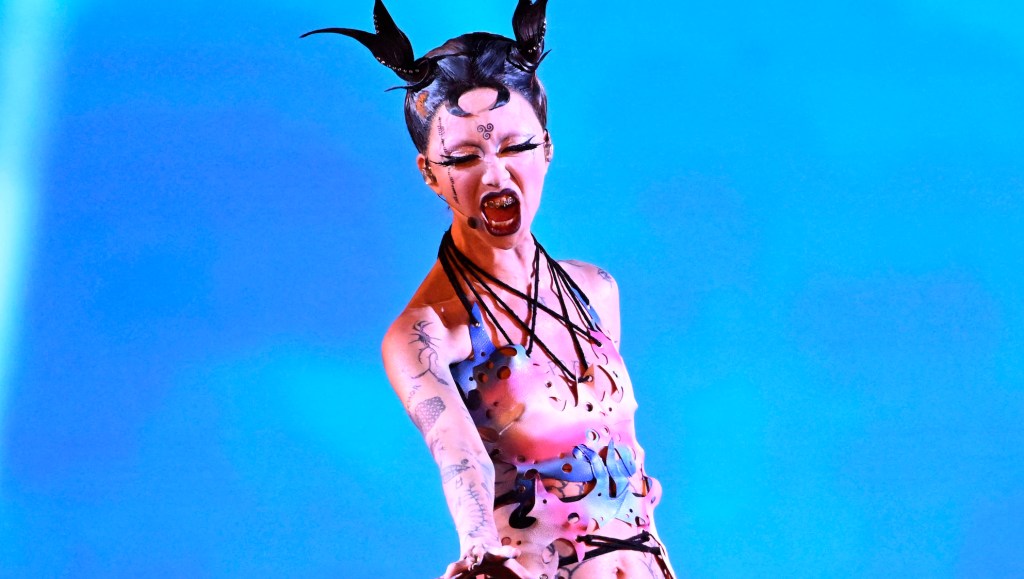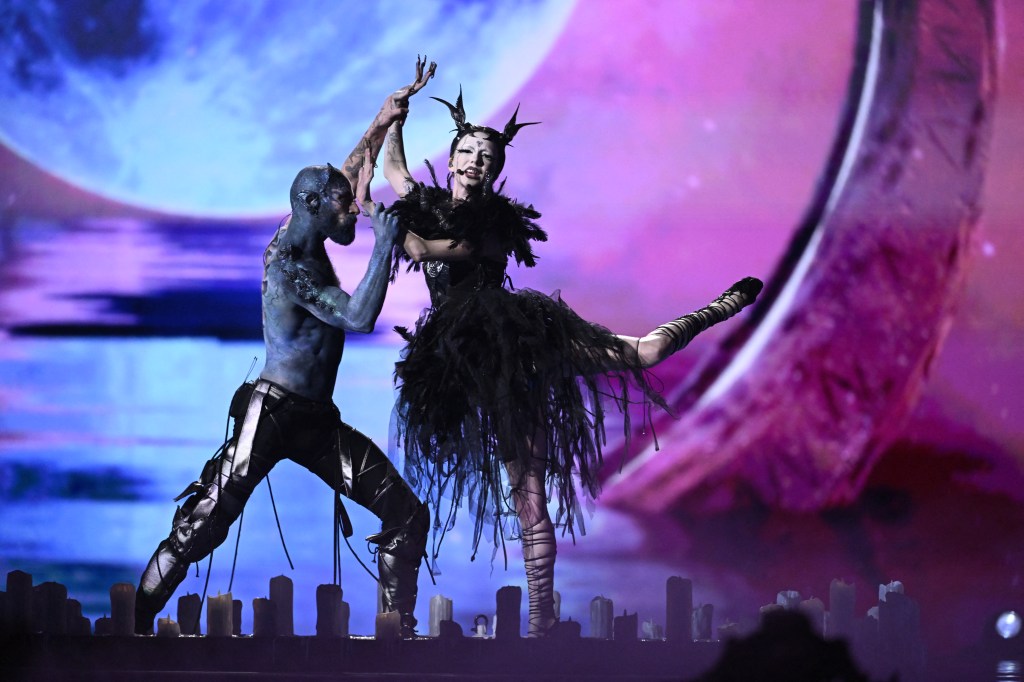Eurovision’s Bambie Thug says EBU forced them to change pro-Palestine outfit

Ireland’s Bambie Thug says they were told to remove pro-Palestine messages from their outfit ahead of Tuesday’s Eurovision semi-final. (Getty)
Ireland’s Eurovision Song Contest entrant Bambie Thug has claimed that the European Broadcasting Union made them remove messages in solidarity with Palestine shortly before their semi-final performance.
Bambie Thug performed last night (7 May) and became one of 10 acts to qualify for Saturday’s (11 May) Eurovision final – the first time an Irish act has done so since 2018.
The non-binary singer eventually took to the stage in an outfit that was revealed to be a trans Pride flag while performing their dark and witchy Eurovision entry “Doomsday Blue”.
According to reports, Bambie Thug had been seen in rehearsals sporting a face tattoo that read ‘Ceasefire’ in the ancient Celtic alphabet Ogham, in reference to the ongoing Israel-Gaza conflict.

In a video posted to X account @wiwibloggs of a press conference, Bambie Thug “confirmed that the EBU required them to remove the words ‘Freedom for Palestine’ and ‘Ceasfire’ from their costume” ahead of the performance.
“It was very important for me [to have these messages on my costume], because I am pro-justice and pro-peace,” Bambie Thug said in the video.
“Unfortunately, I had to change those messages today to ‘Crown the Witch’ only, in order from the EBU.”
In a statement provided by the EBU to PinkNews, the Union said: “The writing seen on Bambie Thug’s body during dress rehearsals contravened Contest rules that are designed to protect the non-political nature of the event.
“After discussions with the Irish delegation, they agreed to change the text for the live show.”
Bambie Thug was among several other Eurovision 2024 entries to have responded to calls for them to pull out of the contest this year over the continued inclusion of Israel, with a joint statement signed by the acts from Norway, Portugal, San Marino, Switzerland, Denmark, Lithuania, Finland as well as the UK’s own act, Olly Alexander.
The statement read: “In light of the current situation in the Occupied Palestinian Territories, and particularly in Gaza, and in Israel, we do not feel comfortable being silent.
“It is important to us to stand in solidarity with the oppressed and communicate our heartfelt wish for peace, an immediate and lasting ceasefire, and the safe return of all hostages. We stand united against all forms of hate, including antisemitism and Islamophobia.
“We firmly believe in the unifying power of music, enabling people to transcend differences and foster meaningful conversations and connections. We feel that it is our duty to create and uphold this space, with a strong hope that it will inspire greater compassion and empathy.”
Bambie Thug added in their own statement that withdrawing from the contest “would mean one less pro-Palestinian voice” present at Eurovision.

Olly Alexander, who will perform the UK’s entry “Dizzy”, has similarly decided not to pull out, and addressed the controversy in the BBC documentary Olly Alexander’s Road To Eurovision ’24.
“A lot of the contestants and myself have been having a lot of comments that are like, ‘You are complicit in a genocide by taking part in Eurovison’, which is quite extreme. It’s very extreme,” he said in the documentary.
“I understand where that sentiment is coming from but I think it’s not correct. It’s an incredibly complicated political situation, one that I’m not qualified to speak on,” he added.
The Eurovision Song Contest’s second semi-final airs on Thursday 9 May at 8pm on BBC One, with the final set to air on Saturday 11 May at 8pm on BBC One.
How did this story make you feel?

